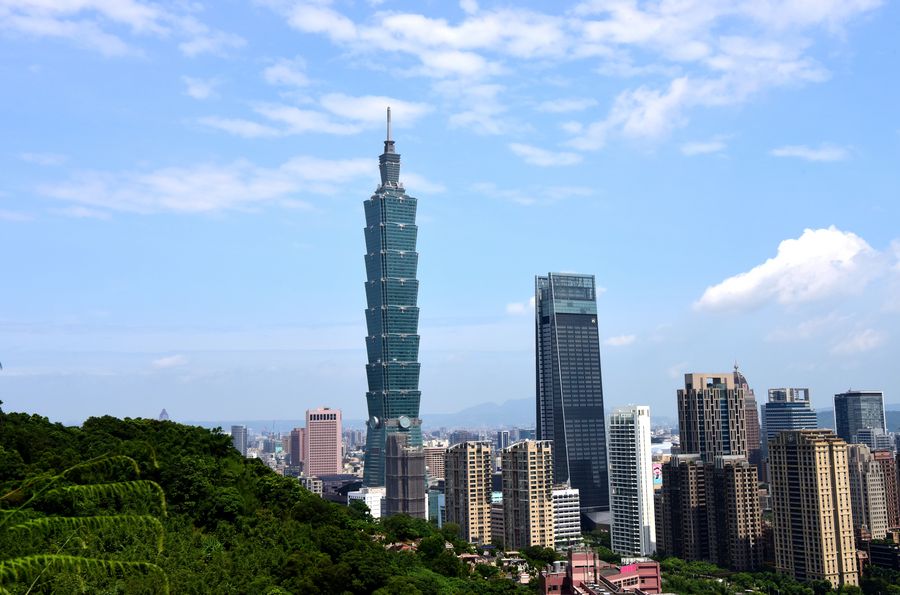Pro-independence DPP hurts Taiwan's interests


Kuomintang vice-chairman Hsia Li-yan led a delegation to the Chinese mainland on Feb 8 to 17 to urge the mainland side to promote "exchanges and dialogue" with the aim of improving people's livelihoods.
On Monday the mainland authorities announced that they will facilitate the resumption of the entry of certain agricultural and aquatic products from the island.
The mainland's gesture comes after Taiwan farmers and fishers, through different channels, said they will improve the quality of their products and take measures to ensure they are absolutely safe for human consumption.
Hsia's visit to the mainland, where he also met the mainland's Taiwan affairs chief Song Tao and Wang Huning, a member of the Standing Committee of the Political Bureau of the Communist Party of China Central Committee, has raised hopes that peaceful cross-Straits exchanges can be resumed. But the island's ruling Democratic Progressive Party questioned the purpose of Hsia's visit, saying it was a "pilgrimage to the CPC". But the DPP always politicizes any cross-Straits exchanges that serve the interests of Taiwan residents.
Despite the DPP's political antics, however, cross-Straits peace has become the mainstream voice in Taiwan. And the fact that Hsia visited the mainland to hold talks without fear or pressure means cross-Straits relations can still improve.
Taiwan businesses have been caught in the middle of the cross-Straits disputes since the DPP came to power in 2016 because of the party's indifference toward them and its pro-independence policies.
Agricultural and fishery companies have borne the brunt of worsening cross-Straits ties as they were unable to update their business registration. The mediation of the KMT and non-government organizations has helped to ease their predicament.
Taiwan enterprises, especially small- and middle-sized enterprises, need the help of the island's Straits exchange foundation and the "mainland affairs council" to expand their businesses. However, since the island's authorities refuse to acknowledge the 1992 Consensus, the negotiation mechanism across the Straits has been suspended.
As the DPP authorities cannot be counted on to improve cross-Straits relations, talks between the KMT and the mainland authorities are the best way to iron out the cross-Straits differences and improve the well-being of the people on both sides.
The DPP authorities have tried to smear Hsia's visit by portraying it as being in pursuit of personal interests. But with Sino-US frictions intensifying and the risk of conflict in the Taiwan Straits rising, Hsia's visits (he also visited the mainland in August) show there are still peaceful and rational politicians in Taiwan who want to improve relations and expand trade with the mainland. This could prompt the mainland to lift some trade bans and exchange restrictions across the Straits.
The DPP authorities also have the responsibility to maintain the cross-Straits exchanges for the well-being of Taiwan residents.
The KMT has been playing a positive role in bridging the cross-Straits divide. The resumption of ferry services between Quanzhou in Fujian province and Kinmen in Taiwan on Feb 10 and the lifting of the import ban on Kinmen Kaoliang Liquor products by the mainland on Jan 29 would not have been possible without the efforts of Chen Fu-hai, county head of Kinmen, and Chen Yu-jen, a KMT legislator.
In contrast to the island's "council of agriculture", which does nothing to improve the plight of farmers and fishers, Hsia, in his meeting with Song Tao, said there is a need to make the cross-Straits investment and business environment more secure so that Taiwan businesses, including SMEs and grassroots enterprises, can prosper and help improve the livelihoods of Taiwan residents.
Although most Taiwan residents hope cross-Straits tensions will ease and normal exchanges resume, the authority on the island refuses to restore direct cross-Straits flights, citing anti-pandemic measures and lack of passengers.
Despite refusing to directly communicate with Beijing, the DPP is unhappy to see the KMT doing it and "take credit" for improving the lives and livelihoods of Taiwan residents. That's why it is using the old trick of defaming the KMT.
Hsia's visit shows that the hyping up of the claim that "the mainland will militarily attack Taiwan" has no foundation so long as the 1992 Consensus is upheld.
Just as Wang and Song said, "Taiwan independence" is incompatible with peace and runs counter to the well-being of Taiwan residents, and the mainland is willing to increase exchanges with the KMT with the aim of ensuring permanent peace across the Straits on the basis of the 1992 Consensus.
Hopefully, the island authorities will face up to public opinion on the island and stop trying to denigrate Hsia's visit. The KMT on its part should continue to make a sincere effort to seek peace for the whole Chinese nation and improve the well-being of the people on both sides of the Straits.
The author is a professor of the cross-Straits relations and international relations at Fu Jen Catholic University. The views don't necessarily represent those of China Daily.
If you have a specific expertise, or would like to share your thought about our stories, then send us your writings at opinion@chinadaily.com.cn, and comment@chinadaily.com.cn.
































